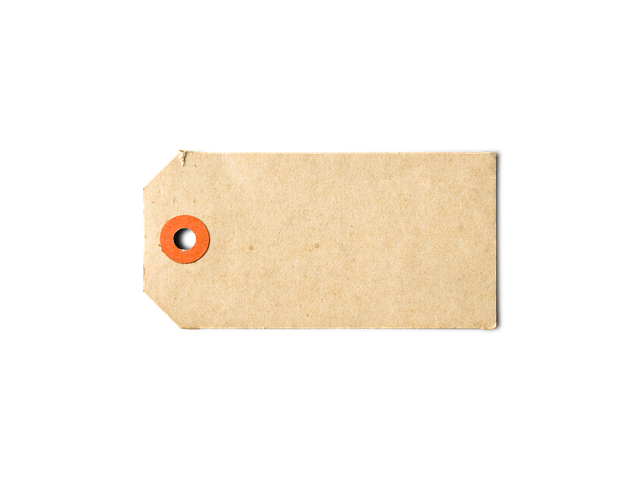Apple cider vinegar (ACV) is a home remedy for removing skin tags, commonly referred to as Liverpool tags in the UK. To use this method safely, dilute ACV and apply it to the tag using a cotton ball or gauze for 15 minutes twice daily, after cleansing and moisturizing the area. Monitor your skin's reaction closely; if irritation or discomfort occurs, stop treatment and consult a healthcare professional. The process involves waiting for the skin tag to darken and dry out before it naturally falls off, which can take several weeks to months. This method should be approached with caution due to the acetic acid's potential to cause skin irritation or infection. It's not suitable for those with sensitive skin or health conditions like diabetes, who should seek professional medical advice instead. For individuals considering this treatment, a patch test is advisable to test your skin's sensitivity to ACV. Professional services like Liverpool Tag Removal can offer expert guidance and safe medical solutions for effective removal of skin tags. They ensure proper diagnosis, tailored treatment plans, and aftercare, minimizing potential risks for the best possible outcome.
Exploring the potential of apple cider vinegar as a natural remedy for skin tag removal, this article delves into the scientific rationale and offers a detailed guide for a safe Liverpool Tag Removal process. Discover how this versatile household staple can be harnessed to address unwanted skin growths, while also considering the risks involved to ensure safe application in your skincare routine.
- Understanding Skin Tags and Apple Cider Vinegar: A Safe Approach for Liverpool Tag Removal
- The Science Behind Apple Cider Vinegar for Skin Tag Treatment
- Step-by-Step Guide to Using Apple Cider Vinegar for Effective Liverpool Tag Removal
- Potential Risks and Considerations When Using Apple Cider Vinegar for Skin Tag Removal
Understanding Skin Tags and Apple Cider Vinegar: A Safe Approach for Liverpool Tag Removal

Skincare enthusiasts and individuals seeking natural remedies often explore various methods for skin tag removal, with Apple Cider Vinegar (ACV) being a popular home treatment. Skin tags, commonly referred to as Liverpool tags when discussing their removal in the context of Liverpool or the UK, are benign growths that resemble tiny pieces of hanging skin. They are typically harmless and painless but can be aesthetically displeasing to some individuals. The process of using ACV for tag removal involves carefully applying the vinegar to the affected area with a cotton ball, ensuring that the skin tag is fully saturated. This natural acidity in ACV is said to cause the skin tag to darken and fall off naturally over time. It’s crucial to follow this treatment consistently and with caution, as the skin’s pH balance must be respected to avoid adverse effects.
When considering Liverpool Tag Removal with ACV, it’s essential to approach the process safely and informed. One should start by diluting the ACV with water to prevent excessive irritation, especially if the skin tag is on a sensitive area or has unique characteristics that might react differently than other skin tags. The application should be brief at first, observing how the skin reacts over several days before extending the duration. Regular monitoring for signs of infection or adverse reactions is necessary. Additionally, individuals with diabetes or other health conditions that affect skin sensitivity should consult a healthcare professional prior to attempting ACV treatment. This approach to Liverpool Tag Removal should be pursued with patience and care, as the results can vary based on factors such as the size, location, and composition of the skin tag.
The Science Behind Apple Cider Vinegar for Skin Tag Treatment

Apple cider vinegar (ACV) has gained popularity as a natural remedy for various health and skin concerns, including the removal of skin tags. The acetic acid present in ACV is believed to cause the skin tag to slowly decompose and fall off. This occurs due to the acidic nature of the vinegar, which creates an environment that inhibits the growth of skin cells within the tag. When applied topically with a cotton ball or pad, the acetic acid penetrates the skin tag, leading to a drying process as the skin cells dehydrate and eventually slough off.
Liverpool Tag Removal clinics offer professional guidance and treatment for those seeking to remove skin tags safely and effectively. While home remedies using ACV can be effective, they require patience and consistent application. The process typically involves applying a diluted solution of ACV directly to the skin tag nightly, ensuring the area is clean and dry before each application. It’s important to note that while some individuals may experience success with this method, results can vary based on factors such as the size, location, and composition of the skin tag. Individuals considering this treatment should consult with a healthcare professional or dermatologist for personalized advice and to ensure that the chosen method is appropriate for their specific condition.
Step-by-Step Guide to Using Apple Cider Vinegar for Effective Liverpool Tag Removal

For those seeking a natural remedy for skin tag removal, apple cider vinegar (ACV) has emerged as a popular choice, particularly within the context of Liverpool Tag Removal. This guide will outline the step-by-step process to safely and effectively use ACV to address skin tags. Begin by diluting raw, unfiltered apple cider vinegar with water in a ratio that is not too harsh on the skin—typically one part ACV to two parts water. Using a cotton ball or a piece of gauze, apply the solution directly to the skin tag, ensuring full coverage of the tag itself. It’s important to saturate the area without causing runoff onto surrounding skin. Leave the vinegar solution on the skin tag for about 15 minutes twice daily. This duration may vary depending on individual tolerance and the size of the skin tag. After each application, rinse the area with water and apply a moisturizer to maintain skin hydration.
Throughout the Liverpool Tag Removal process, it’s crucial to monitor your skin’s reaction. If irritation or discomfort occurs, discontinue use immediately and consult a healthcare professional. As the skin tag begins to darken and dry out—a natural response to the ACV application—it can be carefully removed by gently wiping it away with a Q-tip or by washing it off under a warm shower. Do not attempt to pull or cut the skin tag off manually, as this can lead to infection or scarring. Patience is key; the process may take several weeks or even months, depending on the size and health of the skin tag. Consistency is vital for successful Liverpool Tag Removal using ACV. If there are any underlying health concerns or if the skin tag persists, always seek advice from a medical professional.
Potential Risks and Considerations When Using Apple Cider Vinegar for Skin Tag Removal

When considering the removal of skin tags using apple cider vinegar, it’s crucial to understand both the potential benefits and risks associated with this home remedy. Apple cider vinegar is often cited for its acidic properties, which can cause skin tags to dry up and fall off naturally. However, this process should be approached with caution. The acetic acid in the vinegar can irritate the skin if applied improperly or for too long, potentially leading to infection or scarring. It’s also important to note that individuals with sensitive skin or conditions like diabetes should avoid this method, as it may exacerbate existing health issues.
Before proceeding with apple cider vinegar for skin tag removal, a patch test is advisable to determine if the acidity of the vinegar will cause adverse reactions on your skin. Additionally, the application should be done with diluted vinegar and only on skin tags that are not cancerous or located in areas with poor circulation, as this could complicate healing. Liverpool Tag Removal clinics offer professional guidance and medical-grade treatments for those seeking safe and effective removal options. Opting for a professional service ensures proper diagnosis, treatment planning, and post-removal care to minimize risks and achieve the best outcomes.
In conclusion, exploring the use of apple cider vinegar as a natural remedy for Liverpool tag removal offers a promising alternative to conventional medical treatments. The scientific rationale behind its effectiveness lies in its acidic properties, which can promote controlled skin cell dissolution. By adhering to a careful and gradual application process, individuals may safely attempt to remove skin tags using apple cider vinegar. However, it is imperative to approach this method with caution, as skin sensitivity and potential reactions vary. Regular monitoring and medical consultation are essential, especially for those with sensitive skin or underlying health conditions. While apple cider vinegar presents a non-invasive option for Liverpool tag removal, personalized medical advice should guide one’s decision-making process to ensure the safest outcomes.
